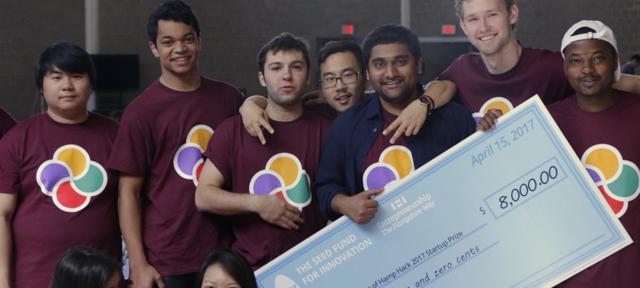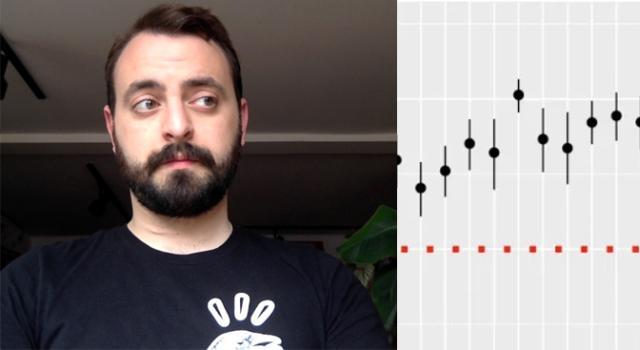HampHack Students Tackle 21st-Century Problems in 24-Hour Challenge

A robot that monitors Antarctic ice rifts, a brain-controlled video game, and an automatic stock-trading algorithm were among the projects pushing the boundaries of technology, art, design, and fabrication at the College’s second-annual HampHack, which took place April 14 and 15.
Most hackathons center on technology alone, but HampHack embraces Hampshire’s interdisciplinary ethics to bring together student teammates from a host of backgrounds. More than 500 participant applications were submitted, and hackers came from schools throughout the Northeast to take part in an event that cofounder Nirman Dave says “gives their unique idea an escape velocity into reality.”
Participants utilized technology ranging from Microsoft’s HoloLens to Facebook’s virtual reality device Oculus to create potentially viable products, tackling problems in environmental sustainability, brain sciences, artificial intelligence, health sciences, life hacks, and other themes determined in part by sponsoring companies such as Major League Hacking, Viacom, MassMutual Financial Services, and the Roddenberry Foundation. Those organizations provided more than $27,000 in awards for projects such as:
- Come Back Bees, the Environmental Sustainability Award winner, developed by Worcester Polytechnic Institute and UMass Lowell students to educate the public on ways to help bee populations.
- Digiface, an artificial-intelligence-based security system created by UMass Amherst students, which won the Artificial Intelligence and Life Hacks Award.
- The Antarctic Rover, winner of the Fantasy Hack Award, an autonomous bot developed by NYU and Rutgers students to assist scientists in understanding and monitoring rifts in Antarctic glaciers and ice landmasses.
- Renew, the Nutrition and Health Award winner, designed by Hampshire and Tufts students. The heart rate– and movement-monitoring bracelet, to be used in mental-health awareness, also won both the Community Challenge Prize and the Health and Fitness Prize.
“We took our product from a pipe dream to the beginnings of a functioning product in twenty-four hours,” says Hampshire’s Grace Montgomery, who created Renew with Tufts student Ben Janis. “We learned a lot of Android app development, as we had very little experience with the program. And as one of us studies creative writing and theater and the other studies comp sci and economics, it was interesting to see what we were able to accomplish together.”
In last year's event, four HampHack teams attracted funding to develop their products as start-up ventures.
- Alli App, by David Pearl. An app to help people in an emergency get immediate access to first aid
- MuSyc, by Michelle Ora Ali. A hardware product that helps people with synesthesia easily visualize the world around them.
- AgriGatr, by Max Cheney and partners. A hardware product to help farmers better their agricultural practices
- Whiteboard Scanner, by Gunther Cox. A product that helps scan a whiteboard and save it as notes.
To see photos and learn more about this year’s winners and prizes, visit https://hamp-hack-2017.devpost.com.
All photos by Gabe Beresin



